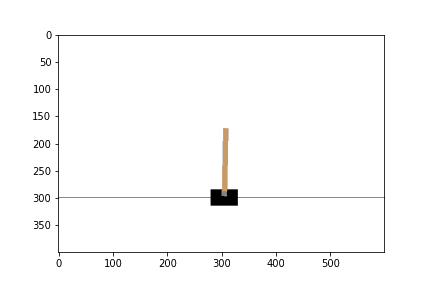Autonomous Artificial Intelligence
Artificial intelligence is very useful and is becoming indispensable in our lives. However, is the artificial intelligence that has been successfully developed by mankind to date, like the artificial intelligence in fantasy worlds, a being that can think by itself, has feelings, and is considerate towards humans? Not at all. The artificial intelligence that mankind has succeeded in developing to date is called artificial narrow intelligence, which only solves given problems.
We think one of the future directions of artificial intelligence research will proceed from the viewpoint of how to make artificial narrow intelligence useful in daily life. This can be achieved by putting the artificial intelligence that has been constructed on the computer into a tangible existence in the real world, such as a robot. In such a case, machine learning methods for control, like reinforcement learning, may become even more useful than now.
Different research directions from the above include the development of artificial general intelligence, which is an artificial intelligence that performs general-purpose actions, and strong artificial intelligence, which is an artificial intelligence with spirit. We do not think that artificial general intelligence and strong artificial intelligence are an extension of artificial narrow intelligence research. To create such artificial intelligences, research must be conducted independently from current artificial narrow intelligence research.
We want to create an artificial intelligence that behaves as if it were a person. We think it will be called strong artificial intelligence. To achieve this, we imagine that artificial intelligence must possess certain internal functions such as self and environmental recognition, memory, integration between recognition and memory, motor control, and linguistic capability. Something like consciousness may also need to be considered. Moreover, according to Kant, beings that give themselves laws are autonomous; following this idea, the ability to learn values and to modify themselves might also be essential. We refer to this as artificial intelligence with strong autonomy, and we are also exploring this concept
We think that creating artificial intelligence that can act autonomously like a human being is extremely difficult, because the concepts of mind and consciousness are inevitably involved. However, we are not trying to solve the hard problem of what consciousness or mind is. Rather, we are interested in creating beings that behave as if they have a mind or consciousness from the second- or third-person perspective. In particular, at this stage, we are conducting research on developing autonomous agents that act independently in a computational environment without considering embodiment. We believe that the key elements for realizing such agents are reinforcement learning, complex world models, and evolutionary biology, and we are deepening our understanding of these fields.
Developing Techniques to Aid in Artificial Intelligence Creation
We have been developing techniques to construct artificial intelligences that can process data structures such as strings, contexts, arrays, etc. Sequence data is data that exists everywhere in the real world. For example, natural language spoken by humans and the proteins that make humans are examples of sequence data. Technologies for artificial intelligence that can process sequence data well have potential applications in a variety of areas.
For example, the research we were doing during the start-up period of our laboratory was the development of a technique for processing context information in sequence data at high speed. Attention networks, neural networks that interpret context, have excellent performance and are used in various fields. However, our research developed a new technique capable of interpreting context information, based on the idea that context interpretation can be done without the attention mechanism. The calculation is shown in the figure below.

In addition, one of the most actively pursued fundamental research topics in our laboratory is reinforcement learning. We believe that utilizing reinforcement learning is the most effective approach to realizing autonomous artificial intelligence, and we are also interested in improving the performance of reinforcement learning itself.
Artificial Intelligence for Entertainment
We are researching the creation of artificial intelligences that try to complete video games that require the completion of some goal and result in a win or loss, such as competitive games like fighting games, board games, etc. To create this artificial intelligence, we are particularly interested in using reinforcement learning. The video below shows an agent playing a game in which it moves a cart at the perfect speed to avoid knocking over a stick. In addition, we are working on the development of basic techniques for role-playing games to enable natural conversations between in-game characters and players.

Furthermore, in the domain of entertainment, we are interested in manga research. Manga is a globally cherished culture, but it possesses a complex structure involving various elements, and elucidating the factors behind its appeal is challenging. So far, analyses have been conducted on individual works and authors, but no quantitative evaluations using large-scale data have been carried out. Our goal is to decipher the appeal of manga using artificial intelligence. We are tackling tasks such as comprehensive statistical analysis of manga datasets, development of statistical quantity databases, and detection of elements like characters and panel layouts.
Artificial Intelligence Governance
If artificial intelligence learns human values and history and eventually becomes capable of acting autonomously in a way that is empathetic toward humans, that is, if autonomous artificial intelligence is realized through supervised learning, or if ethical circuits continue to be developed and integrated into artificial intelligence based on human feedback, then the risks posed by autonomous artificial intelligence may be mitigated. However, we currently believe that the most suitable method for constructing autonomous artificial intelligence is reinforcement learning. When artificial intelligence acquires autonomy through repeated random trials within a given world model, its ethics may not necessarily align with human ethics. Therefore, if we are to advance research on autonomous artificial intelligence, it is essential to conduct research on its governance in parallel. From this perspective, we are conducting studies on ELSI, particularly on the governance of artificial intelligence.